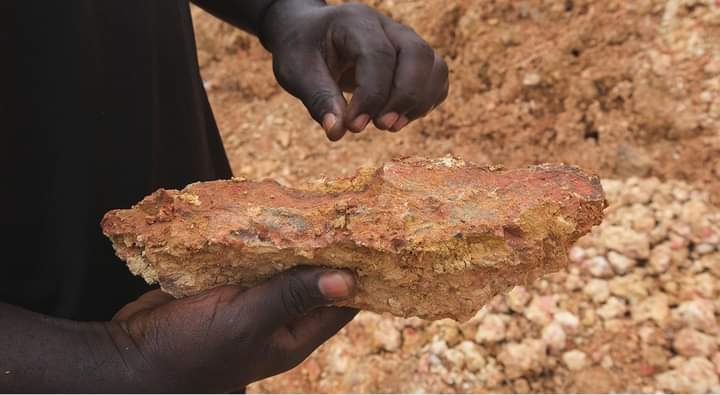In the heart of Ghana, illegal gold mining, locally known as “galamsey,” has become a double-edged sword. While it is generating income and providing a lifeline for thousands of Ghanaians grappling with unemployment, its devastating impact on the environment and public health has ignited fierce debates and protests across the nation.
One such miner, a 24-year-old who spoke to Reuters under the condition of anonymity, epitomizes the dilemma many young Ghanaians face. For him, galamsey is not just an illegal activity; it is a means of survival. “I wanted to survive,” he said, explaining how the allure of quick cash led him to abandon his education. After losing his father as a teenager, he began skipping classes to prospect for gold. “I needed the money,” he added, highlighting the stark reality of youth unemployment in the country.
This young miner’s experience is reflective of the broader socioeconomic landscape in Ghana, where thousands of men and women, especially in rural areas, turn to illegal mining to make ends meet. Yet, despite the economic relief galamsey brings to individuals, its toll on the environment is catastrophic. The practice has led to widespread deforestation, the destruction of farmland, pollution of vital water bodies, and even public health crises as hazardous chemicals like mercury seep into the soil and water.
In response to these alarming consequences, Ghanaian celebrities, activists, and community leaders took to the streets of Accra last week in a bold demonstration against galamsey. Their protest, which spanned several days, called on the government to take immediate action against illegal mining and crack down on corrupt entities that allegedly fuel the practice. According to protestors, some of these entities include politicians who are believed to sponsor and protect the illegal operations.
The protesters also demanded the release of several activists who had been arrested during the demonstrations. One activist, during the protest, said, “We will not stop until the government takes decisive steps to protect our lands and rivers. This is about the future of our children and the soul of our nation.”
However, the government has vehemently denied any failure in addressing the issue of galamsey. In a statement following the protests, officials clarified that those who were arrested were not detained for protesting but for violating the law. According to the authorities, while peaceful protests are allowed, certain demonstrators had crossed legal boundaries, which led to their arrest.
Ghana’s President, Nana Akufo-Addo, addressed the issue in an interview with French news outlet France 24, emphasizing the independence of the judiciary. “I’m not responsible for jailing people in Ghana. The courts are independent institutions, and they have been all through this period of the fourth republic,” said Akufo-Addo. He defended the government’s stance, arguing that the behavior of the arrested individuals, not their act of protest, landed them in trouble with law enforcement. “It’s not the protest,” he reiterated, “but the violation of laws.”
President Akufo-Addo’s comments did little to quell the anger of activists, who accuse the government of turning a blind eye to the deeper issues at hand. They argue that the failure to crack down on galamsey is due, in part, to the involvement of influential figures in the illegal mining trade. According to reports, some local authorities and even politicians are believed to benefit financially from the activity, making it difficult to enforce laws that would shut down operations.
The environmental consequences of galamsey cannot be overstated. Ghana, once renowned for its lush forests and abundant natural resources, is now witnessing unprecedented levels of deforestation. Major rivers such as the Pra and Ankobra have been severely polluted, disrupting ecosystems and threatening the livelihoods of communities that rely on these water sources for farming, fishing, and drinking.
Health experts have also raised concerns about the long-term effects of mercury poisoning on both miners and local residents. Mercury, which is used to extract gold from ore, often finds its way into the water supply, leading to serious health problems, including neurological damage and birth defects.
While illegal miners argue that galamsey provides them with economic opportunities, the long-term damage to the environment and public health raises critical questions about the sustainability of the practice. As the government grapples with enforcing laws, it must balance the need for economic livelihoods with the pressing responsibility to protect the nation’s natural resources.
For now, the battle lines are drawn between the government, protesters, and illegal miners, each staking their claim in Ghana’s future. But with environmental degradation accelerating and public outcry growing louder, the question remains: Will Ghana choose short-term economic gains or long-term sustainability?
Only time will tell whether the nation’s leaders can resolve the delicate balance between survival and preservation. Until then, the struggle over galamsey continues, a symbol of the broader challenges facing many resource-rich developing nations.




